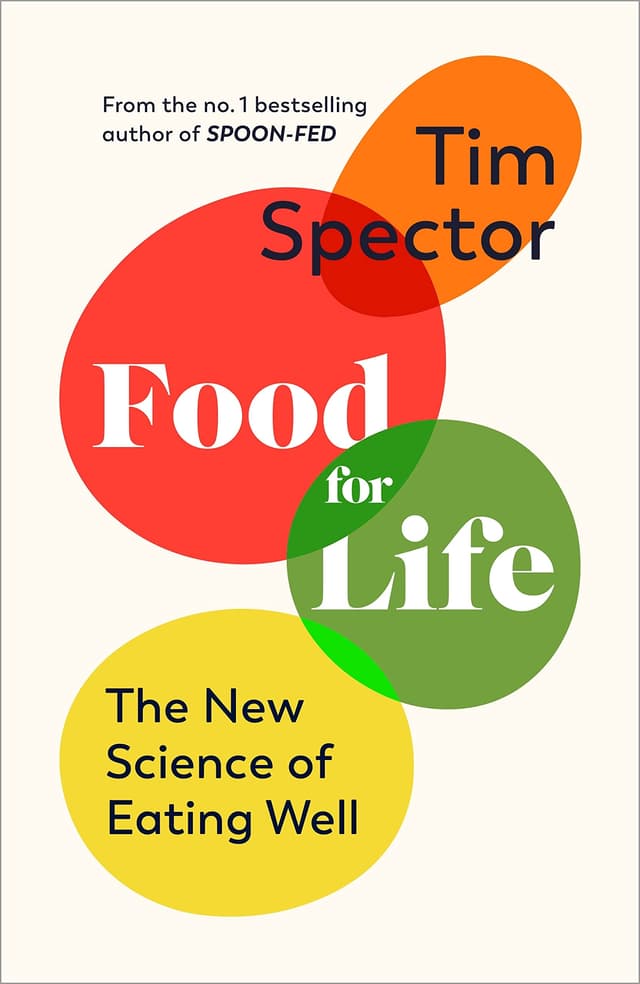
Book Review Summary: Food for Life: The New Science of Eating Well
Introduction
Food for Life: The New Science of Eating Well by Tim Spector is a comprehensive guide to the science of nutrition, drawing on the author's cutting-edge research and personal insights. In this book, Spector explores the many wondrous and surprising properties of everyday foods, which scientists are only just beginning to understand. With a wide-angle lens on everything from environmental impact and food fraud to allergies and deceptive labeling, Spector provides a new approach to how we should eat for our health and the health of the planet. In this article, we will analyze the views of readers, summarize the reasons for recommendation and not recommendation, and conclude with a final assessment of this informative book.
About Tim Spector
Tim Spector is a renowned scientist and author with extensive experience in genetic epidemiology. As Professor of Genetic Epidemiology at Kings College, London, and Director of the TwinsUK Registry, Spector has made significant contributions to the genetic basis of various common diseases. His research has uncovered over 400 novel genes in over 30 diseases, earning him numerous accolades and publications in prestigious journals such as Science and Nature. Spector's expertise in nutrition and his ability to communicate complex scientific concepts make him a reliable source of information for readers seeking a deeper understanding of food and its impact on our health.
Analysis of Views
- Informative and well-researched: Many readers found the book to be super informative and well-researched, providing valuable insights into the current state of food chains, global eating habits, and their impact on our guts. They appreciated the author's ability to present complex scientific concepts in an accessible manner.
- Empowering and practical: Readers found the book empowering and practical, as it provided them with tools and knowledge to make informed food choices. They appreciated the author's comprehensive coverage of various food categories and his evaluation of research on these topics.
- Insightful and thought-provoking: The book was praised for its insightful and thought-provoking content. Readers found it scary, shocking, scientific, and balanced, as it challenged established diet and nutrition myths. It also made them reconsider their eating habits and consider the environmental impact of their food choices.
- Comprehensive coverage: Readers appreciated the book's comprehensive coverage of various aspects of food, including sustainability, sourcing, and its effect on the microbiome. They found it valuable as a reference guide for tips on how to make better food choices.
- Potential limitations: Some readers expressed concerns about the author's advice not to take supplements, as they felt it may not be applicable to everyone. They also noted that some recommendations were difficult to implement, particularly for those with limited means or different nutritional needs.
Reasons for Recommendation
- Comprehensive approach: Readers recommend this book for its comprehensive approach to nutrition, covering various aspects such as gut microbiome, environmental impact, food industry, history of specific foods, and personalized nutrition studies. It provides a holistic view of food choices and their effects on health and the planet.
- Empowering knowledge: The book empowers readers with knowledge about food categories, sourcing, and its impact on their health. It encourages them to make informed choices based on research-backed information rather than following trends or fads.
- Accessible writing style: The author's accessible writing style makes complex scientific concepts accessible to a wide audience. Readers appreciate his ability to present complex information in an engaging manner, making the book enjoyable to read.
Reasons for Not Recommendation
- Personalization concerns: Some readers expressed concerns about the author's personalized recommendations based on his own experiences or research results. They felt that these recommendations may not be applicable or relevant to everyone's individual needs or circumstances.
- Potential limitations: Readers noted that some recommendations may be difficult to implement or may not align with their personal values or preferences. They appreciated the author's acknowledgment of these limitations but felt that some advice could be more nuanced or tailored to individual circumstances.
Conclusion
Food for Life: The New Science of Eating Well by Tim Spector is a comprehensive guide that offers a science-based approach to nutrition. It provides valuable insights into the current state of food chains, global eating habits, and their impact on our health and the planet. While some readers found the book informative and empowering, others expressed concerns about personalization and the feasibility of certain recommendations. Overall, this book serves as a thought-provoking resource for those interested in understanding the complexities of food choices and their effects on our well-being.